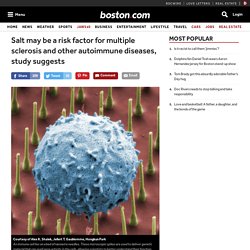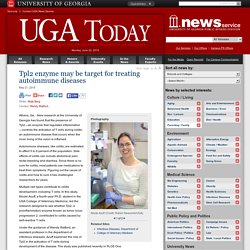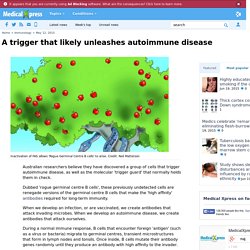

Anklosing Spondylitis. Autoimmune Addison’s Disease. Autoimmune Hemolytic Anemia. Autoimmune Hepatitis. Autoimmune Inner Ear Disease. Autoimmune Lymphoproliferative Syndrome (ALPS) Behcet’s Disease. Cardiomyopathy. Celiac Sprue-Dermatitis. Chronic Fatigue Syndrome Immune Deficiency Syndrome (CFIDS) Chronic Inflammatory Demyelinating Polyneuropathy. Cold Agglutinin Disease. Crohn's Disease. Dego’s Disease. Diabetes.
Essential Mixed Cryoglobulinemia. Fibromyalgia. Grave’s Disease. Guillain-Barre. Hashimoto’s Thyroiditis. Idiopathic Pulmonary Fibrosis. IgA Nephropathy. Lupus. Mixed connective Tissue Disease. Myasthenia Gravis. Pemphagoid. Pemphigus Vulgaris. Pernicious Anemia.
Polyglancular Syndromes. Polymyalgia Rheumatica. Polymyositis and Dermatomyositis. Primary Agammaglobulinemia. Primary Biliary Cirrhosis. Psoriasis. Reactive Arthritis. Rheumatic Fever. Rheumatoid Arthritis. Sarcoidosis. Scleroderma. Sjogren’s Syndrome. Stiff Person Syndrome. Ulcerative Colitis. Uveitis. Vasculitis. Vitiligo. Salt may be a risk factor for multiple sclerosis and other autoimmune diseases, study suggests - Science. What started as a detailed study of the inner workings of one kind of immune cell has led two teams of researchers from New England to a surprising insight: a high-salt diet may increase risk of autoimmune diseases, such as multiple sclerosis and psoriasis.

The scientists reported Wednesday they found an enzyme that, when exposed to salt, causes a regular immune cell to transform into a pathogenic one, spewing out inflammatory proteins that have been linked to autoimmune illnesses. Mice genetically prone to develop a form of multiple sclerosis developed more severe disease when fed a high salt diet. The intriguing connection needs further study; no one knows yet whether cutting salt intake will prevent autoimmune diseases. Many of these illnesses—in which the body’s defenses against infections go haywire, attacking itself—have been on the rise.
“I was quite elated when I saw this work,” said Dr. Three and a half years ago, Dr. The researchers were intrigued. Tpl2 enzyme may be target for treating autoimmune diseases. Athens, Ga. - New research at the University of Georgia has found that the presence of Tpl2—an enzyme that regulates inflammation—controls the activation of T cells during colitis, an autoimmune disease that occurs when the inner lining of the colon is inflamed.

Autoimmune diseases, like colitis, are estimated to affect 5 to 8 percent of the population. Side effects of colitis can include abdominal pain, rectal bleeding and diarrhea. Since there is no cure for colitis, most patients use medications to treat their symptoms. Figuring out the cause of colitis and how to cure it has challenged researchers for years. Multiple cell types contribute to colitis development, including T cells. Under the guidance of Wendy Watford, an assistant professor in the department of infectious diseases, Acuff examined the role of Tpl2 in the activation of T cells during development of the disease. "We specifically wanted to know how Tpl2 influences Th1 and Th17 cell development," Acuff said.
A trigger that likely unleashes autoimmune disease. Australian researchers believe they have discovered a group of cells that trigger autoimmune disease, as well as the molecular 'trigger guard' that normally holds them in check.

Dubbed 'rogue germinal centre B cells', these previously undetected cells are renegade versions of the germinal centre B cells that make the 'high affinity' antibodies required for long-term immunity. When we develop an infection, or are vaccinated, we create antibodies that attack invading microbes. When we develop an autoimmune disease, we create antibodies that attack ourselves. During a normal immune response, B cells that encounter foreign 'antigen' (such as a virus or bacteria) migrate to germinal centres, transient microstructures that form in lymph nodes and tonsils. Once inside, B cells mutate their antibody genes randomly until they produce an antibody with high affinity to the invader. "Most significantly, many of the antibodies derived from rogue cells turned out to be autoantibodies. " Vitamin D Deficiency Found Highly Prevalent of Across the Board in MS, Neuromuscular Disease Multiple Sclerosis News Today.
Type 1 Diabetes and Autoimmune Diseases - Diabetes.